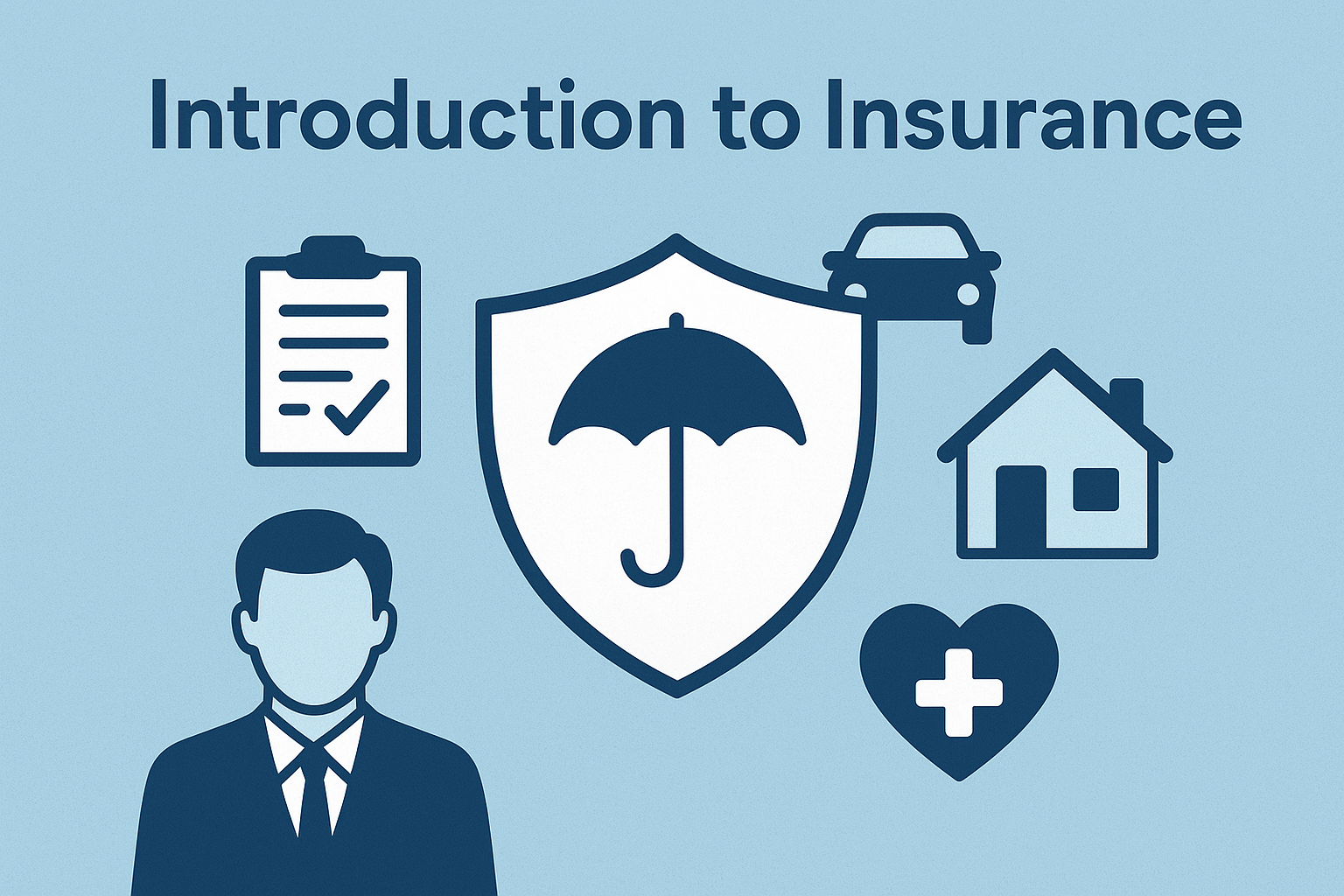Introduction to Insurance: Understanding the Basics
Insurance is a financial tool designed to protect individuals, families, and businesses from unexpected risks and financial losses. An introduction to insurance helps beginners understand how insurance works, the types of coverage available, and why it is essential for financial security.
What is Insurance?
Insurance is an agreement between an insurer (insurance company) and an insured (individual or business) in which the insurer provides financial protection against specific risks in exchange for a premium. In simple terms, insurance helps transfer the financial burden of unexpected events to the insurance company, offering peace of mind and security.
Importance of Insurance
Understanding the importance of insurance is crucial for anyone looking to safeguard their future. Here’s why insurance matters:
- Financial Protection: Insurance covers losses due to accidents, illnesses, natural disasters, or theft, ensuring you don’t face severe financial setbacks.
- Peace of Mind: Knowing that risks are covered reduces stress and uncertainty.
- Legal Requirements: Certain insurance types, like vehicle insurance, are legally mandatory in many countries.
- Wealth Protection: Insurance helps protect assets such as homes, vehicles, and businesses from unforeseen events.
- Financial Planning: Life and health insurance are vital tools in long-term financial planning and retirement strategies.
Types of Insurance
There are several types of insurance, each catering to different needs:
1. Life Insurance
Life insurance provides financial security to beneficiaries in the event of the policyholder’s death. Policies may include term life, whole life, and endowment plans.
2. Health Insurance
Health insurance covers medical expenses such as hospitalization, surgeries, and prescription costs. This type of insurance is essential for protecting against high healthcare costs.
3. Auto Insurance
Auto insurance provides coverage for damages to vehicles and liabilities arising from accidents. Policies may cover third-party liability, comprehensive coverage, and personal injury.
4. Home Insurance
Home insurance protects homes and personal property from damages due to fire, theft, natural disasters, and other unforeseen events.
5. Business Insurance
Business insurance safeguards companies from financial losses due to operational risks, property damage, liability claims, and employee-related risks.
How Insurance Works
Insurance operates on the principle of risk pooling. Policyholders pay premiums to the insurance company, which pools these funds to cover losses for those who experience insured events. By spreading risk across many individuals, insurance makes financial protection affordable and sustainable.
Choosing the Right Insurance
When selecting insurance, consider the following:
- Coverage Needs: Identify what risks you need protection against.
- Premiums: Evaluate the cost of premiums versus the benefits provided.
- Reputation of Insurer: Choose a reliable insurance company with a strong track record.
- Policy Terms: Understand the terms, conditions, and exclusions of the policy.
- Long-term Goals: Ensure that your insurance aligns with financial and personal goals.
Conclusion
An introduction to insurance is the first step toward understanding how to protect yourself, your family, and your assets from unexpected financial losses. With the right insurance coverage, individuals and businesses can face uncertainties with confidence, ensuring financial stability and peace of mind.
